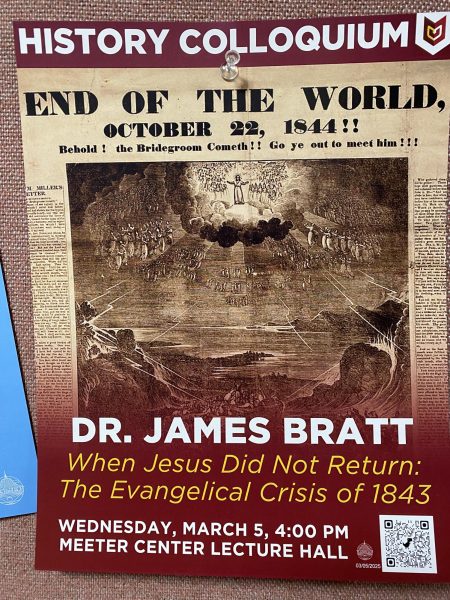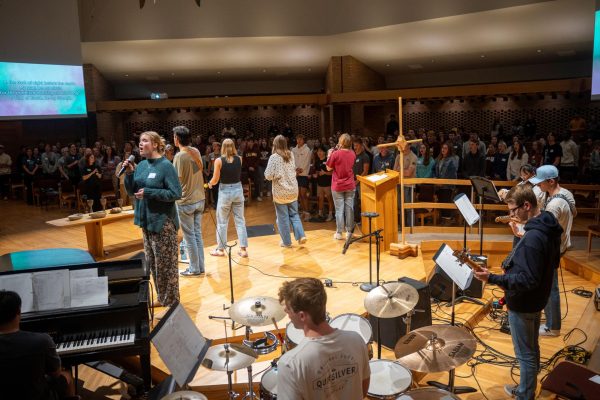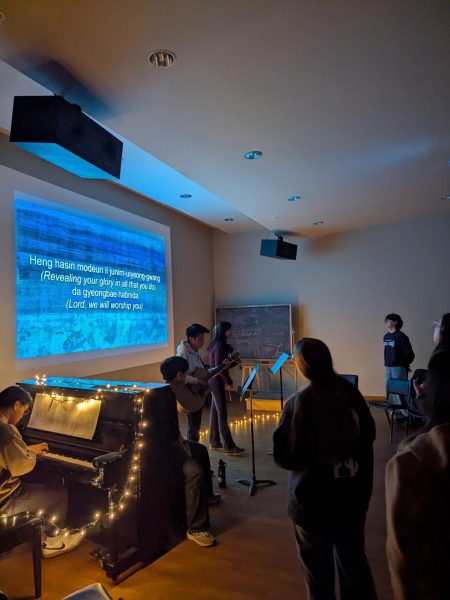Passover celebrations recall Israel’s salvation
Last week, as Christians around the world celebrated Holy Week, those from Jewish traditions were celebrating Passover. While Christian traditions do not celebrate Passover, the observance is fundamentally tied to their faith heritage and understanding of redemption.
“The story of Passover is a story for all people of faith,” said Rabbi Michael Shadick of Temple Emanuel in Grand Rapids. “This is the story that we all share.”
The tradition of Passover began the night God passed over the houses of the Israelites, saving their firstborn sons. Passover serves as a remembrance of the plagues and the Israelites’ freedom from bondage in Egypt.
Celebration of Passover begins with the Seder, a ritual feast that includes retelling the story of the Exodus.
“We celebrate every year that story anew,” said Shadick. “We celebrate in the place of our ancestors who were slaves. One of the things we do at the Seder is we remember the plagues. We say them aloud — frogs, hail, darkness — as each plague is recited, we take a sip of the wine. We are reminding ourselves that, while we are happy to be free, in our story to gain that freedom, people suffered.”
In this sense, Shadick believes that the story of Passover is a call for Jewish people today to speak out against oppression.
“We have to address issues today of slavery and bondage. No matter in what age or place we are living, there are people still living in bondage.”
Just as Christian traditions have nuanced versions of religious observances, different traditions of Judaism celebrate the Passover differently.
“For some people, it is cultural,” said Giselle Le’Aupepe, a Messianic Jew living in New York. “Some people just get together for a meal; some people will talk about it forever. The essence is the same. The Jewish people were released from captivity.”
Since Le’Aupepe is a Messianic Jew, she views the Passover as a foreshadowing of Christ’s resurrection.
“It is not just what God did for the Jewish people; it coincides with Easter,” said Le’Aupepe. I really believe that there is a huge foreshadowing of the Messiah in this. There are so many symbols of the Passover festival that point to the New Testament. It is not just about the Israelites being removed from Egypt.”
One thing all traditions can agree on is the importance of food in the celebration.
“[Unleavened bread] is the staple of our carb diet during that week to remind ourselves that our ancestors fled from Egypt in haste,” said Shadick. “We put ourselves in their company. We eat foods that remind us of their struggle — bitter vegetables to remind us of their bitter situation, mixed fruits to remind us of the mixture that the slaves used to build the pyramids.”
For Messianic Jews, food is another way the celebration points to Christ’s sacrifice.
“You have different foods which help symbolize the different aspects of redemption,” said Le’Aupepe. “I love that tradition and I love that food is used to tell the story of Passover. The traditions come in how you create the experience for yourself and your family.”
No matter the traditions, both Shadick and Le’Aupepe agree that Passover plays much of the same role for Jews as Holy Week does for Christians — it is, in fact, a celebration of freedom and redemption.
Shadick said, “Passover is this annual remembrance that we feel compelled to hear the story that we were slaves and with the hand of God, we became free.”





